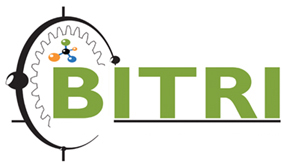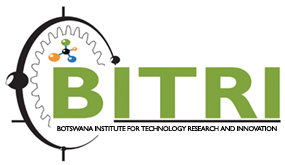April 12, 2022

Botswana Institute for Technology, Research and Innovation (BITRI) and stakeholders held the Botswana Biogas Conference 2021 in December at the Gaborone International Convention Centre (GICC).
Held under the theme ‘Biogas for Botswana: Solutions to Energy & Environmental Challenges’, the conference brought together stakeholders who shared the various interventions they contributed towards the project, as well as insights looking to the future. The conference also assessed the successes and challenges of the project, as well as the rollout of the project going forward.
When delivering the Keynote Address, the Minister of Mineral Resources and Green Technology (MMGE) Honourable Lefoko M. Moagi said the Government of Botswana has taken a lead in promoting energy efficiency and the use of renewable energy.
“My Ministry has completed the National Energy Policy (NEP), the Integrated Resource Plan (IRP), as well as the Renewable Energy Strategy (RES) which will be used by Government for planning purposes, programmes, and project implementation. The Government of Botswana has planned to reduce greenhouse gas emissions by 15% by year 2030, from the baseline of 2010” Minister Moagi elaborated.
“The steady development of renewable energy sources is driven, above all, by the aspiration for sustainable development. Climate change is an issue for which renewable energy can, and must play a key role. The reason for the central role of renewables is obvious – renewables are fully or almost carbon-free,” Minister Moagi further added.
The project, titled “Promoting Production and Utilization of Biogas from Agro-waste in South-Eastern Botswana (Biogas Project)”, began in January 2017 and ended in January 2022, and its aims were to facilitate low carbon investments in the production and utilization of biogas from agro-waste in the South-East, Southern, Kgatleng and Kweneng Districts.
BITRI was allocated the research and innovation component, and UNDP Botswana, the Department of Energy (DOE) under the MMGE, and Water Utilities Corporation (WUC) were the key partners. DOE was tasked with implementing the project on behalf of Ministry of Environment, Natural Resources Conservation and Tourism (MENT) represented by the Department of Waste Management and Pollution Control (DWMPC).
The Government of Botswana (GoB) and the United Nations Development Programme (UNDP) were the principal implementation partners of the project, and the Global Environment Facility (GEF) was the main financier.
The BITRI CEO Prof Shedden Masupe, and Executive Director – Technologies Dr. Sebusang Sebusang attended the conference. The Senior Researcher in the Energy division Dr. Edward Rakgati was part of a panel discussion during the conference. It was revealed that the project has supported the training of 69 small-scale digester masons and the capacity building of 16 biogas trainers in six vocational training institutes. In addition, 200 small-scale digesters were built, with the goal of developing a feasibility study report for a medium-scale digester for the Botswana Meat Commission (BMC) in the future.
Other significant achievements of the project include the development of biogas and fuel standards, the upgrade of renewable energy feed-in tariffs, as well as the development of the Integrated Waste Management Bill. The project supports the NDP11 of Botswana which speaks of improving the security of supply, equitable access to affordable modern energy, increasing the share of renewables, and offsetting the country’s carbon footprint through renewables.

